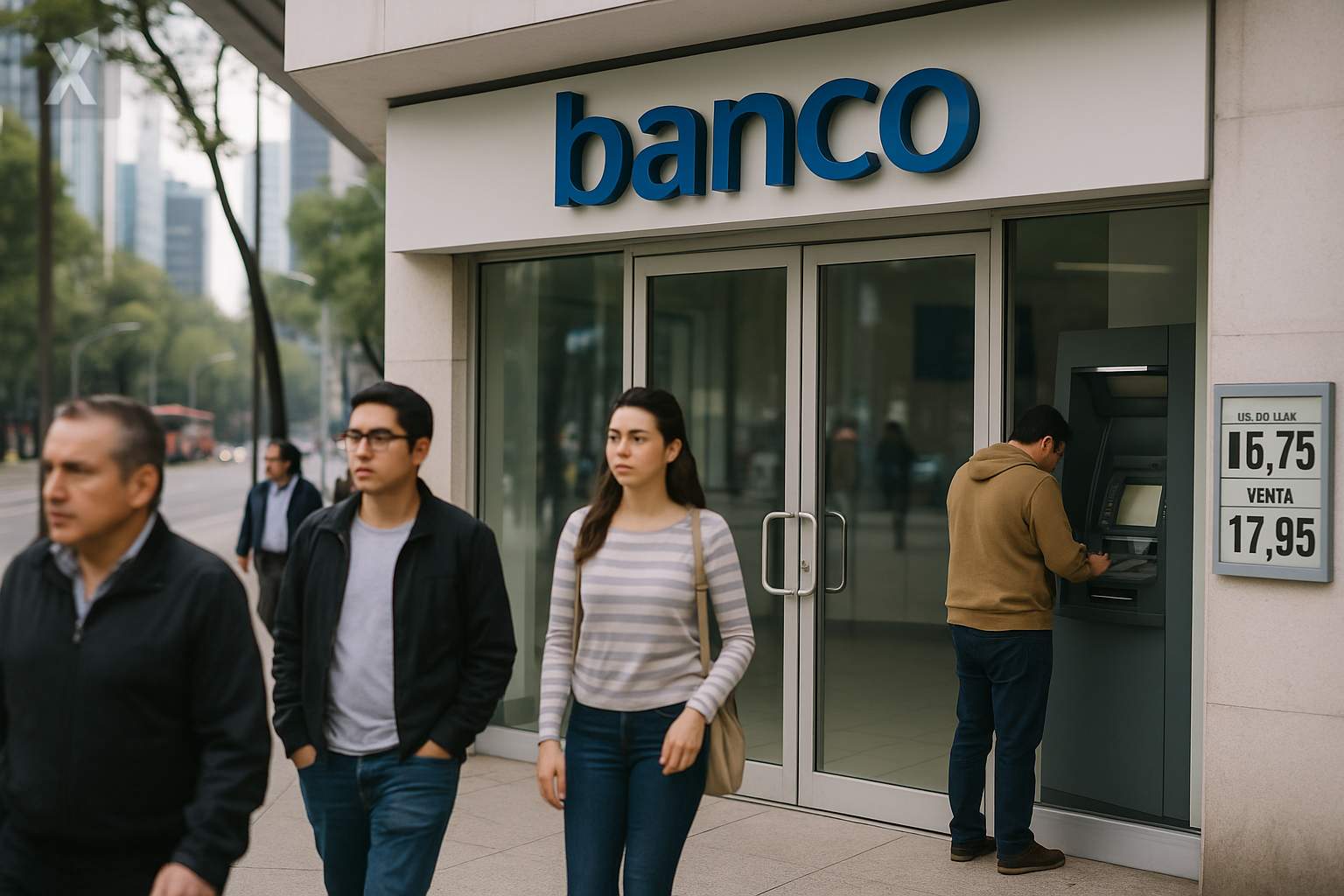Temporary Intervention in Mexican Banks Following Money Laundering Allegations: Everyday Operations, an Air of Normalcy

The Mexican economy is currently undergoing international scrutiny and adjustments in its financial sector after the U.S. government accused CI Banco, Intercam, and Vector of alleged money laundering activities for criminal organizations. Despite the media impact and the importance of these allegations, operations at various branches of these institutions, located in Mexico City, have continued without visible disruptions for customers, according to recent site visits and observations.
In the first few hours after the announcement, normalcy was maintained in services such as currency exchange and credit origination. At Terminal 1 of Mexico City International Airport, a CI Banco window offering competitive exchange rates remained unattended by customers for several minutes, while other currency exchange outlets showed typical activity. However, in branches located in commercial downtown areas like Paseo de la Reforma, public service continued regularly, with no major changes in wait times or available financial products.
At one of CI Banco’s branches, bank executives continued to provide advice on auto loans and account openings. Electronic boards displayed stable dollar rates, and both over-the-counter and ATM operations took place without restrictions or reported incidents. Intercam, meanwhile, saw a steady flow of clients at its branches and ATM services, demonstrating that customers largely stuck to their regular banking routines despite the international media noise.
During monitoring visits, employees and executives from the aforementioned banks reported that daily operations had not been interrupted and that no special internal instructions had been received in connection with the U.S. investigation. They also reiterated that customers’ savings and credit products were protected, while sharing official statements in which the implicated institutions categorically denied the allegations.
Nevertheless, the context of apparent stability shifted slightly after the National Banking and Securities Commission (CNBV) announced a temporary intervention in the administrative management of Intercam and CI Banco. The Mexican regulator explained that this intervention aims to protect savers and clients by temporarily replacing the management and legal representation of these entities as the implications of the U.S. Treasury Department’s actions are clarified.
This episode highlights both the vulnerability and the resilience of Mexico’s financial system when faced with international events, in an environment where financial interconnectivity demands swift responses from both regulatory authorities and the institutions themselves. Despite the scrutiny, the country’s banking system continues to employ protection and oversight mechanisms through agencies like the CNBV. Meanwhile, the Bank of Mexico has repeatedly emphasized the solidity of the national banking sector in the face of external shocks and the importance of maintaining transparency against potential threats to financial integrity.
Looking ahead, the case’s development will depend on the results of investigations in both Mexico and the United States, as well as the ability of the involved institutions to guarantee public trust. Analysts agree that the effective handling of the situation by regulatory authorities will be critical in mitigating reputation risks and safeguarding the stability of the national financial sector—a key factor for the country’s economic performance and international perception.
In conclusion, although Mexico’s financial sector has been shaken by high-profile allegations and extraordinary regulatory measures, day-to-day wholesale and retail banking operations have remained stable. The institutional response will be crucial to avoid volatility and maintain confidence in the banking system, which continues to demonstrate resilience in the face of external pressures.





